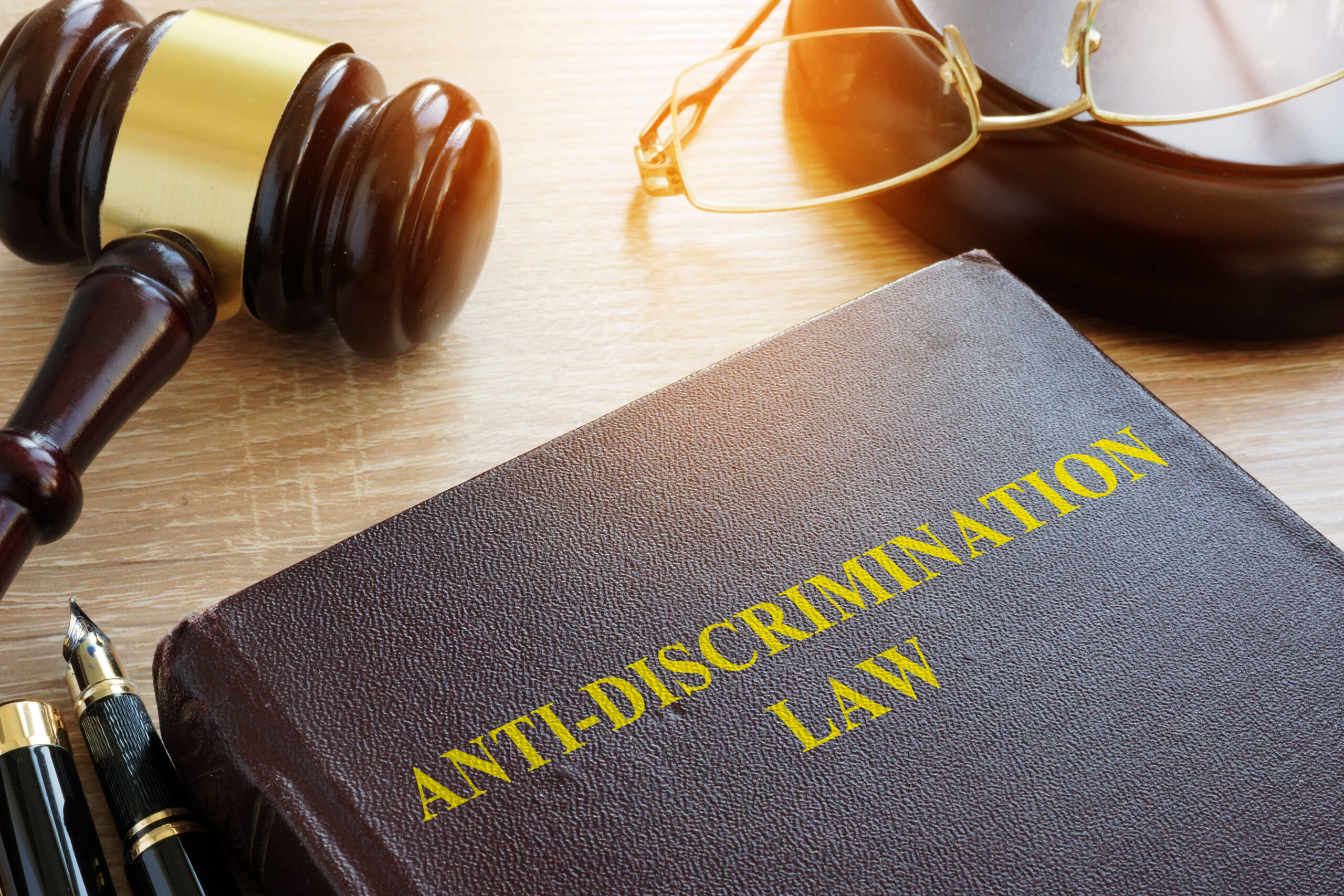Federal antidiscrimination law aims to provide equal opportunity to students regardless of their backgrounds, color, age, sex, race, national origin or disability. This law is enforced by agencies such as the U.S. Department of Education’s Office for Civil Rights (OCR).
It is responsible for keeping an eye on compliance and advising education institutions on how to comply with the law. The government strives to establish an educational setting from prejudice so that every student can succeed by upholding federal civil rights legislation. It is important to understand the legislation and procedures in place to guarantee enforcement.
Applicable Discrimination Laws and Acts
Title VI of the Civil Rights Act of 1964
According to this Act, programs and activities that receive federal financial aid are prohibited from discriminating based on race, color, or national origin. A pupil will not be excluded from educational opportunities or subjected to discriminatory treatment based on their color or ethnicity. In order to be in compliance with Title VI, educational institutions and schools must take action to stop and resolve prejudice. This action includes giving kids who don’t speak English well enough language support services and guaranteeing that all students have equal access to academic programs.
Title IX of the Education Amendments of 1972
A federal statute known as Title IX forbids sex-based discrimination in any activity or program receiving government funding for education. Although Title IX is most well-known for its effects on gender parity in sports, it also has an impact on financial assistance, recruitment, and admissions in all facets of education. No student shall be prohibited from participating in any educational program, denied its advantages, or exposed to discrimination on the basis of their sex; this includes protection from sexual harassment and violence.
Section 504 of the Rehabilitation Act of 1973
According to Section 504 of the Rehabilitation Act of 1973, people that receive federal money with disabilities are protected from discrimination in programs and activities. In order to guarantee equitable access to education for students with disabilities, this law mandates that schools make accommodations and adaptations. Schools are required by Section 504 to develop customized plans for each student with a disability and to make the appropriate modifications to the classroom environment, such as adding assistive technology or changing the materials.
Age Discrimination Act of 1975
According to the Age Discrimination Act of 1975, age discrimination is illegal in programs and activities that get funding from the federal government. This law guarantees that people of all ages are not unjustly excluded or discriminated against based on their age and that they have equal access to educational opportunities. The law applies to both younger and older people, mandating educational institutions provide services and programs without setting age-based limits unless those restrictions are essential to the program’s operation.
Title II of the Americans with Disabilities Act of 1990
Under Title II of the Americans with Disabilities Act (ADA) of 1990, individuals with disabilities are granted safeguards against discrimination in all public bodies, including public schools and colleges. Schools are required by Title II to provide children with disabilities with access to their programs, services, and activities. This entails making buildings physically accessible, offering assistive technology and services, and changing procedures and rules to stop prejudice.
Boy Scouts of America Equal Access Act
The Boy Scouts of America Equal Access Act mandates that public schools and other educational institutions receiving federal funding grant the Boy Scouts of America and other youth organizations equal access to facilities and communication channels. This law makes sure that these groups aren’t subjected to prejudice because of their policies about leadership or membership. These groups must be treated by schools in the same manner as other outside organizations, and they must be granted equal access to all school resources and facilities.
Areas Covered by Civil Rights Laws
Admissions
Civil rights rules guarantee that educational institutions do not discriminate in their admissions processes on the basis of race, color, national origin, sex, age, handicap, or disability. This implies that there should be no unjustified obstacles preventing eligible people from enrolling in educational programs, and that all candidates should be treated equally and fairly.
Recruitment
Civil rights safeguards also apply to recruitment procedures. In order to ensure that outreach programs and marketing materials are inclusive and accessible to everyone, regardless of race, sex, disability, or other protected characteristics, schools and colleges must aggressively recruit students in a non-discriminatory way.
Financial Aid
Federal civil rights rules prohibit discrimination in the delivery of financial aid. To provide equal opportunity for all students to afford their education, institutions must make sure that loans, grants, scholarships, and other forms of financial help are given out equally, without bias. There should not be any preference based on race, sex, handicap, or age.
Academic Programs
Courses, majors, and advanced placement options must all be equally accessible to all students. Because of their race, gender, handicap, or other protected status, students are guaranteed the opportunity to pursue their chosen fields of study, thanks to civil rights legislation that prohibits discrimination in educational environments.
Student Treatment and Services
The way pupils are treated generally and the services they receive are covered by civil rights legislation. This involves making sure that all kids, regardless of their origin or identity, receive fair support and treatment, including equal access to health services, tutoring, and extracurricular activities.
Counseling and Guidance
It is mandatory for educational institutions to offer impartial counseling and guidance services to students. This means that without prejudice or unequal treatment based on a person’s ethnicity, sex, handicap, or other protected characteristics, all students should have access to professional, academic, and personal counseling that suits their requirements.
Discipline
All student groups shall receive equitable and uniform application of disciplinary policies and procedures. According to civil rights regulations, educational institutions must make sure that discipline is meted out without bias, abstaining from any actions that unfairly target students based on their gender, race, or status as disabled.
Classroom Assignment
Students must be assigned to classrooms or instructional groups impartially. Civil rights regulations guarantee that student needs and academic standards are taken into consideration when placing students in classrooms, as opposed to discriminatory characteristics like race, sex, or disability.
Grading
All pupils must receive fair and consistent grading procedures. To guarantee that all students are evaluated on the basis of their academic accomplishments, educators must evaluate student performance objectively and refrain from permitting discriminating considerations to affect marks.
Vocational Education
All students must have equal access to vocational education programs, regardless of their gender, color, or handicap. This involves making certain that resources, teaching, and enrollment in vocational training are given without regard to race, enabling every student to pursue education with an emphasis on careers.
Recreation
It is imperative that school-sponsored recreational programs be available to every student. Civil rights rules guarantee that no student will be denied access to school-sponsored recreational programs because of their race, sex, handicap, or any other protected status.
Physical Education
Programs for physical education need to be created and run without discrimination in mind. Regardless of their gender, color, or disability, all students must have equal access to physical education classes, sports, and fitness activities.
Athletics
Title IX expressly forbids sex discrimination in school sports, and all students must have equal access to athletic programs and opportunities. It is imperative for educational institutions to guarantee that male and female pupils have equivalent chances to engage in sports, obtain guidance, and utilize athletic resources and facilities.
Housing
When housing is offered in educational settings, such as college dorms, civil rights laws guarantee that accommodations are distributed equally and without bias. This involves providing all students, regardless of color, sex, handicap, or age, with equitable access to housing on campus.
Employment
Faculty and staff positions, as well as other employment possibilities, must be administered and offered without discrimination in educational institutions. Civil rights laws guarantee equal treatment and opportunities for all workers by guarding against discrimination in hiring, promotion, and other employment practices.
Types of Discrimination
Race, Color, or National Origin Discrimination
When pupils receive unfair treatment or are denied access to educational opportunities because of their race, color, or national origin, this is a type of discrimination. Such discrimination is forbidden in any program or activity that receives federal financial assistance under Title VI of the Civil Rights Act of 1964. All children must have equal access to educational opportunities, resources, and programs in schools, regardless of their race or ethnicity.
Sex Discrimination
When someone is treated differently in an educational context due to their gender, this is known as sex discrimination. The primary federal statute that forbids sex-based discrimination in any educational program or activity that receives federal financing is Title IX of the Education Amendments of 1972. This covers defenses against pregnancy or gender identity discrimination, unfair treatment in sports, and sexual harassment.
Disability Discrimination
When students with impairments are treated unfairly or are not allowed equal access to education, this is known as disability discrimination. Students with disabilities are guaranteed reasonable accommodations and are not excluded from educational programs and activities under Section 504 of the Rehabilitation Act of 1973 and Title II of the Americans with Disabilities Act (ADA) of 1990.
Age Discrimination
Age discrimination is illegal in educational programs and activities that receive funding from the federal government, according to the Age Discrimination Act of 1975. This law guarantees equitable access to education for people of all ages and prohibits discriminatory treatment or exclusion based only on age.
Retaliation
When a student or staff member files a discrimination complaint, cooperates with an inquiry, or stands up for their rights under civil rights legislation, the school is engaging in retaliation. Retaliation is illegal under federal law, so people can report discrimination or assist others in reporting it without worrying about repercussions.
Discrimination Laws in Education
Laws against discrimination in education provide a number of safeguards that guarantee every student’s right to an education devoid of prejudice and unjust treatment. These rules, which are implemented to foster inclusive, fair learning environments, cover a wide range of discriminatory practices, including those based on age, sex, disability, and race.
Overview of Federal Education Laws Prohibiting Discrimination
Federal education regulations are meant to shield students from discrimination on the basis of a variety of factors, guaranteeing that everyone has equal access to educational opportunities.
Protected Characteristics
Several protected characteristics are covered by these statutes, including:
- Race: Title VI of the Civil Rights Act of 1964 forbids discrimination on the basis of race. Students of all races must be given equal treatment and opportunities in schools that receive federal funds.
- Gender: Title IX of the Education Amendments of 1972 prohibits discrimination based on gender, guaranteeing that students will not be rejected or subjected to unjust treatment in any educational program on the basis of their sex, including matters concerning sexual harassment and gender identity.
- Age: It is illegal in educational settings to discriminate based on age, according to the Age Discrimination Act of 1975. It guarantees equitable treatment for people of all ages.
- National Origin: Title VI prohibits discrimination against students on the basis of their national origin, preventing them from being excluded from educational programs because of their race or place of birth. Protections for pupils with low competence in English are included.
- Disability: Title II of the Americans with Disabilities Act (ADA) of 1990 and Section 504 of the Rehabilitation Act of 1973 guarantee that students with disabilities receive the necessary accommodations and are not subjected to discrimination in educational settings.
Coverage of Title VI
The Civil Rights Act of 1964’s Title VI prohibits discrimination on the grounds of race, color, and national origin in any activity or program that receives funding from the federal government.
This law mandates that educational establishments make certain that all students have equal access to opportunities, services, and programs, irrespective of their background. In order to ensure compliance with Title VI’s requirements, schools must take proactive steps to avoid discrimination and rectify any instances that do occur.
Enforcement by the Office for Civil Rights (OCR)
Role of OCR
Federal civil rights statutes forbid discrimination in educational programs and activities. It is enforced by the Office for Civil Rights (OCR), a division of the U.S. Department of Education. To protect students’ rights, OCR investigates complaints, advises educational institutions, and takes enforcement action when needed. This assures compliance with statutes such as Title VI, Title IX, Section 504, and the ADA.
Grievance Procedures
All educational institutions must have grievance procedures in place that let staff members, parents, and students report instances of prejudice. Fair, prompt, and impartial procedures are necessary to guarantee that complaints are thoroughly examined and handled in compliance with federal law.
Filing a Complaint With OCR
A person may submit a complaint to the OCR if they think that an educational institution has violated their civil rights. Any individual who has been directly impacted by the discrimination, as well as those acting on behalf of another individual or organization, may file a written complaint.
Deadline for Filing
Within 180 days of the claimed discrimination, a complaint must be submitted to OCR. If OCR has a good reason to prolong the deadline—for example, if they are still working to settle the matter through the institution’s grievance procedures—they may do so.
Information Required for Complaint
A complaint must contain particular facts, such as the name and contact information of the person filing, an explanation of the discriminatory act, the date(s) of the incident(s), and any supporting paperwork or evidence. The complaint must specify exactly how the complainant feels their civil rights were infringed.
Who Can File a Complaint
Anyone can register a complaint with OCR if they think that their rights, or the rights of another individual or organization, have been infringed. Students, parents, guardians, staff members, and outside parties are all included in this. Concerning discrimination on the basis of race, color, national origin, sex, handicap, or age, OCR is accepting complaints.
Outcome of OCR Investigation
OCR investigates whether an institution has broken civil rights legislation following the filing of a complaint. In the event that OCR discovers evidence of prejudice, it collaborates with the organization to create a resolution agreement that resolves the infraction and puts corrective actions in place. OCR may take enforcement action, such as severing federal funding, if the institution disobeys.
Prohibition of Retaliation
Retaliation against people who report something to OCR or assist with an investigation is forbidden by federal law. Educational institutions are required to make sure that parents, staff members, and students are shielded from any negative consequences that may arise from their participation in a civil rights complaint. Federal civil rights statutes are broken by retaliation, which is illegal in and of itself and subject to additional sanctions.
Steps Following Discrimination Findings
Voluntary Compliance
Voluntary compliance is frequently the chosen course of action when the Office for Civil Rights (OCR) determines that a school or other educational institution has broken federal civil rights legislation. This indicates that the organization consents to implement corrective measures to deal with the discrimination and stop it from happening again. These could include policy revisions, staff training, or other modifications aimed at guaranteeing fair treatment for every student. Usually, the initial phase is voluntary compliance, which enables organizations to address problems without incurring official sanctions.
Enforcement Actions
Enforcement actions may be initiated if an institution does not willingly comply with the corrective measures specified by OCR. Terminating government funding is one of these measures, as is sending the case to the Department of Justice for additional legal action. When an institution refuses to assist OCR in resolving discrimination-related issues, enforcement—a more severe penalty—is applied.
Private Right of Action
Individuals who have been subjected to discrimination in education may be able to pursue legal remedies, such as damages and injunctions, through a private lawsuit against the educational institution. This “private right of action” gives victims of discrimination another way to hold institutions legally responsible when their actions contravene federal civil rights laws.
Discrimination in Education
Federal laws are in place to protect students and guarantee that everyone has the opportunity to receive an equitable education. Discrimination in education can take many different forms, such as selective treatment, unequal access to resources, and exclusion from programs based on protected characteristics.
Key Federal Laws
A number of federal laws, such as the Age Discrimination Act, the Americans with Disabilities Act (ADA), Section 504 of the Rehabilitation Act, Title VI of the Civil Rights Act, and Title IX of the Education Amendments, forbid discrimination in education. These rules offer a framework for stopping and dealing with prejudice at American universities and colleges.
Enforcement and Legal Action
The OCR is principally responsible for enforcing these laws. It conducts complaint investigations and verifies compliance by means of voluntary agreements or enforcement actions. People may take legal action in order to seek justice and correct the discrimination they have experienced in situations where OCR’s measures are inadequate or inappropriate.
Conclusion
For a society to be just and equal, prejudice in education must be recognized and addressed. The basis for shielding students from discrimination on the basis of race, gender, disability, and other characteristics is provided by federal legislation, but the struggle for equitable access to education is still ongoing. It is imperative that educational institutions, instructors, and legislators maintain their vigilance and dedication in defending fundamental rights, guaranteeing each student an equal opportunity at success.
Take action if you or someone you know is the victim of prejudice in an educational setting. In order to assist you fight for the justice and equality you are entitled to; K Altman Law is here to guide you through the complexities of federal civil rights statutes. To find out how we can help you protect your right to an education, get in touch with us right now.





